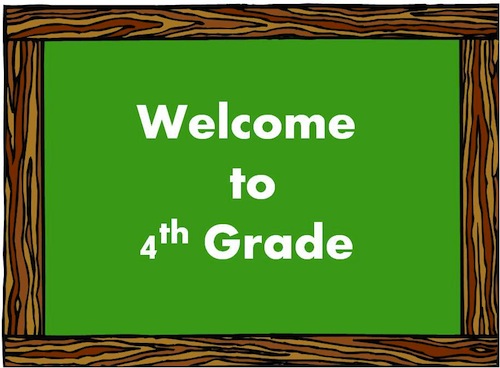The Average Fourth Grader Is a Better Poet Than You (and Me Too)

While in graduate school at the University of Houston, I supplemented my income by working as a writer in residence for Writers in the Schools (WITS). I was with WITS for three years, during which I visited third, fourth, and fifth grade classrooms, and worked with groups of students visiting the Menil museum of art, the Houston Historical Society, and the Houston Arboretum.
When first hired by WITS, I expected that working to explain some of my favorite poems to fourth graders would result in me becoming a better teacher of poetry. What I wasn't expecting was that (thanks to having my brain blown apart on a weekly basis as I browsed my students' folders of barely legible poems) I would become a better poet.
Here are some lines written by students in grades 3rd-6th:
"The life of my heart is crimson.”
[Writing about a family member's recent death:]
"My brother went down/ to the river
and put dirt on.”
"Peace be a song,
silver pool of sadness”
"Away went a dull winter wind
that rocked harshly, and bent you said,
'Father, father'.”
[Writing about a terminal illness:]
"I am feeling burdened
and I taste milk……
I mumble, ‘Please,
please run away.’
But it lives where I live.”
"The owls of midnight hoot like me
shutting the door to nothing.”
[Writing about life as a movie:]
"The choir enters, and the director screams
'Sing with more terror!!!'”
"I have provisions. Binary muffins.
It's an in/out/in/out kind of universe.
We cannot help you,
this is a universe factory.
A sound of rolling symbols.
Disappearing rocks, screams of lizards.
Sanity must prevail. Save vs. Do Not."
"I, the star god,
take bones from the
underworlds of past times
to create mankind.”
These young writers are addressing subjects that still obsess poets fifty years older: sadness, death, love, responsibility, aging, family, loneliness, and refuge…and they are addressing these subjects in language that is new, and thus has the power to emotionally effect a well-seasoned (/jaded) reader. The average fourth grader is able to do this because she hasn't been alive long enough to know how to do it (and by “it” I mean talk about the world) any other way.
Story time: When I was a child I believed that one day I might be allowed to cross into an alternate dimension by walking through a quilt hanging on my living room wall. As I got older I stopped believing that this was a possibility—not because I grew to believe that the universe was not an extremely strange place where incomprehensible things could happen on a daily basis, but because I passed year after year after year not being able to enter the spirit realm through a wallhanging.
Anecdote that I hope you'll find relevant: When Jean Piaget began studying the intellectual processes of children, he was not doing so because he had any special interest in children. Piaget was interested, rather, in the intellectual processes of (adult) humans and was seeking a control group. [His first thought was that the best control group would be comprised of martians but, as he did not have access to martians, he decided to use children since children possessed what is farthest from human consciousness.]
So let's look at what happens to our young writers as they age [I took these lines from poems written by middle-school/ high school students (Italics, mine)]:
Snacking on this and that
my friends and I keep the party going
even when it is over”
"Whispers of a
secret crush being unraveled”
"I’m trapped in this hole that
I can’t break through”
"Barack Obama in the White House.
I can feel the inspiration
Can you feel it?”
"Now I feel secure with my head held high.
Sad times. By middle school/high school, the average student has learned how normal people talk. The resulting language is underwhelming and predictable—the safe regurgitations of a thoroughly socialized consciousness.
While the average older student's poems are heavy with allegiance to a limited view of reality, the average younger writer's vision of the world is nimble and surprising—bizarre, yet true.
Last year I spent every Saturday tutoring an extremely undersocialized kid in vocab. When I taught her the word blandishments (“to flatter, coax, sweet-talk, appeal to”) she wrote this sentence: “The blandishments of the sugar flowers made the cake so much more inviting.”
The sentence is interesting because the student understood that a blandishment is something that attracts favorable attention without fully realizing that people almost always use the word to refer to a human action.
The poet’s job is to forget how people do it.
Hannah Gamble (they/them) is the author of Your Invitation to a Modest Breakfast (Fence Books, 2012)...
Read Full Biography

